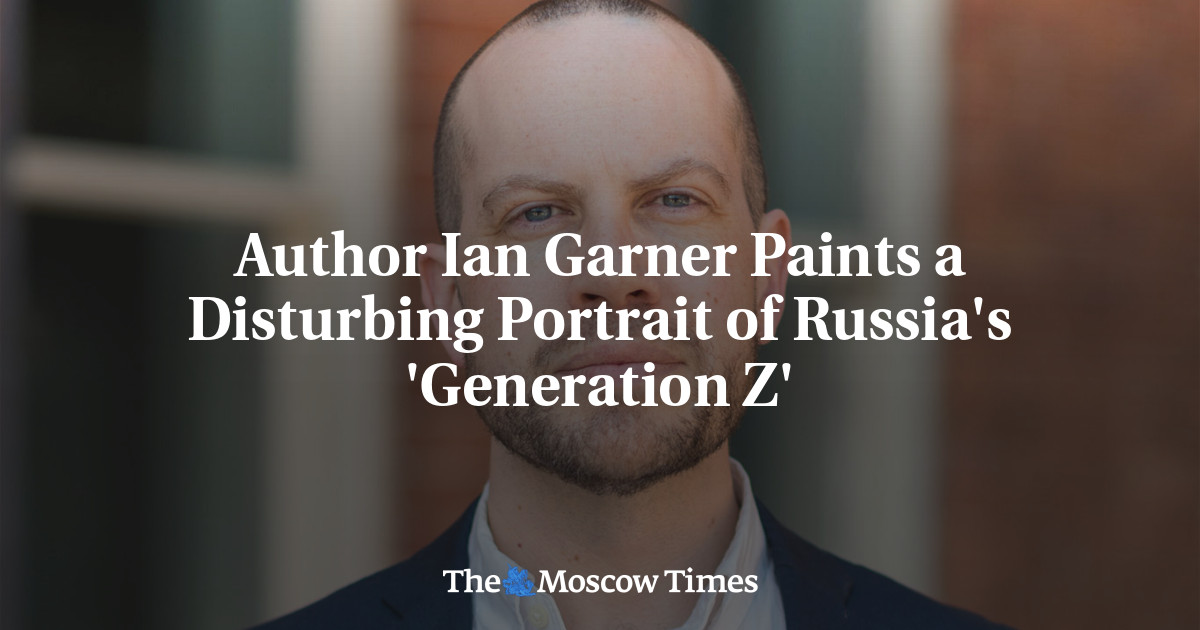
Type “Is Russia fascist?” into a search engine and you will find no shortage of op-eds and articles seeking to enlighten you. RFE/RL, Al Jazeera, Politico, and The New York Times are just some of the major outlets that have published articles weighing up divided expert opinion on the issue.
The title of “Z Generation: Into the Heart of Russia’s Fascist Youth” leaves us in no doubt on which side of the debate its author falls. In Chapter One, “God is With Our Boys,” historian and author Ian Garner acknowledges that fascism is a “contested term” and briefly lays out the argument for its use in the Russian context. “Z Generation,” however, eschews the pearl clutching over semantics and instead takes us on a journey — both engrossing and disturbing — through the warped minds and social media accounts of young people who have embraced the Kremlin’s ideology of hate and destruction.
Garner traces the evolution of Russia’s particular brand of fascism, which centers on the myth of national “regeneration.” In this iteration, the country’s militarized, patriotic youth “cleanse” society of “the outside, the bad, the non-Russian.” “Z Generation” shows us a country full of isolated, angry, and disaffected youths who, in search of belonging and social status, embrace the “talk of cleanliness, the language of dehumanization” and very real violence that is propagated by the Kremlin. Garner argues that there is no longer any distinction between the Online and the Real: The memes and comments supporting Russia’s atrocities in Ukraine “shape a world in which those crimes are normalized and encouraged, making their real perpetration more likely.”
“Z Generation” challenges the clichéd but comforting idea that a country’s youth are its hope. The ‘characters’ we meet in Z Generation — such as 19-year-old Alina who cheered on Russia’s brutal massacre of Ukrainian civilians in Bucha — are the polar opposite of an idealized young generation. The book does not deny the existence of democratically minded young Russians, but rather serves as a chilling reminder not to discount their ever-more prominent antithesis.
Remarkably, given the subject matter, “Z Generation” does not paint a completely hopeless picture. Garner does not simply take us on a journey through the surreal fascist wonderland of Russia’s youth, he also proposes how to save them from it. We in the West must “use our access to Russia’s social media world to recreate the atmosphere of those [fascist] spaces,” the author argues, “but shorn of the state’s militaristic, destructive content. This proposal is alluring in its simplicity, but anyone who works in the field of civil society and human rights may wonder about its practicality. “With a little coordination,” Garner suggests, “It could all be staged from Europe or America with Russian-speaking actors and internet users.” Who would lead the charge and how this foreign-born initiative would meld or clash with the existing work of Russian activists remain unanswered questions.
It is fitting that Garner begins and ends with references to Viktor Shtrum, the protagonist of Vasily Grossman’s totemic novel “Life and Fate,” since “Z Generation” itself reads very much like a novel. The vivid scene setting for the story of Ivan Kondakov — an “educated, eloquent, multilingual” Putin supporter — is emblematic of Garner’s vivid writing style. “The acrid odor of cheap sanitizer bit into the nostrils as orderlies scrubbed down the peeling linoleum floors,” he writes of Kondakov’s grim experience of the Soviet healthcare system. “Flickering lights and burned out-bulbs left consultation rooms and lobbies in perpetual twilight.” Similarly, there is something rather Dickensian in the drily humorous description of Vlad as a “A gentle giant with a penchant for motorbikes, macho aesthetics, and consuming exceptional quantities of alcohol.” Garner’s engaging turn of phrase makes his interviewees human which, in turn, makes their descent into the ugliest depths of Russian fascism all the more disturbing.
Garner’s book is a profoundly disturbing yet compelling read that disabuses the reader of any notion they might have that the full-scale invasion of Ukraine is only “Putin’s war.” It will make anyone who has spent time in Russia wonder how many Alinas, Ivans, or Vladislavs they encountered, how many perfectly pleasant acquaintances tumbled down the fascist rabbit role. “Z Generation” is not the definitive book on Russian fascism, nor does it pretend to be. What it offers is a chilling and eye-opening primer on how the Kremlin is cultivating a new generation of foot soldiers who will ensure that its ugly ideology survives even if the current regime falls. Pick up a copy of “Z Generation,” but be prepared for the warped and violent world it lays bare to stay with you long after you turn the final page.
Ian Garner is a historian focusing on Soviet and Russian war propaganda. The author of “Stalingrad Lives: Stories of Combat and Survival,” he studied at the Universities of Bristol and Toronto, and at the St. Petersburg State Conservatory. “Z Generation: Into the Heart of Russia’s Fascist Youth” is available for purchase through Hurst Publishers.





